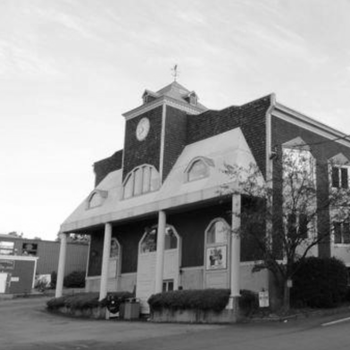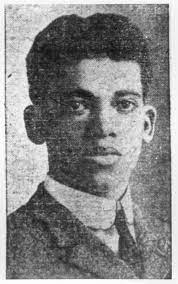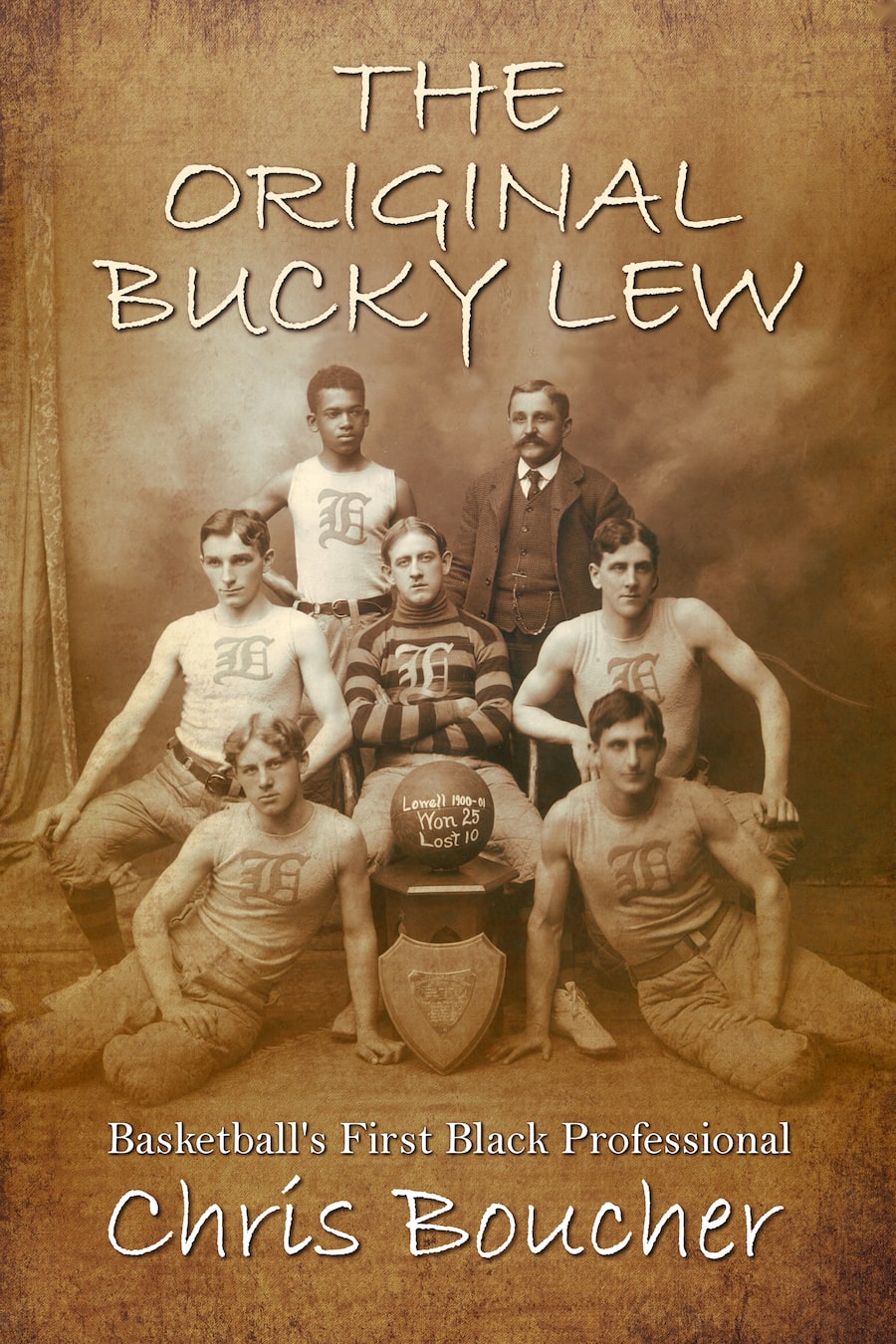
MARLBOROUGH – One of the most important moments in basketball history happened in Marlborough.
When Bucky Lew stepped on the court at the Old Marlboro Theater – now the site of the Flying Dreams Brewing Co. at 227 Main St. – he officially broke the sport’s color barrier, becoming the first Black professional basketball player.
Lew’s incredible – but often untold – story is chronicled in an interesting new biography: “The Original Bucky Lew.” Chris Boucher, the book’s author, visited Tatnuck Bookseller on July 15 to share Lew’s story.

Bucky Lew
Lew, who was only 18 years old at the time of his historic debut, wasn’t even supposed to play; he was signed by the Lowell PAC – short for Pawtucketville Athletic Club – as an extra player. Lowell traveled to Marlborough for the first matchup of the season, and just before the game started, one of Lowell’s starters suffered an injury. Lew was set to enter the game.
At first, Lowell’s manager only sent out four players, deciding to play shorthanded instead of allowing Lew to enter the game. However, the sold-out crowd in Marlborough wanted to see action, and Lew eventually stepped on to the court, performing well during the game.
“He played well. He contributed. He was one of the ‘features of the game,’ in the words of that day. However, no headline says that the first Black professional basketball player has played. That was not noted,” Boucher said during the book event at Tatnuck.
Lew became an instant fan-favorite player, gaining a reputation as an excellent defender.
For instance, Lew competed against Harry Hough, the Pennsylvania-born player widely considered to be the best in the league. Hough normally averaged 16 points per game (teams averaged around 30 points per game in this era of basketball), but Lew held him to 6 points.
Lowell finished in the “middle of the pack” in 1902, but Lew solidified himself as one of the league’s stars.
Although Lew was loved by some, not everyone respected him. Lew faced numerous indignities over his basketball career: various newspapers insulted him, and crowds tried to shout him off the floor. One January night in New Hampshire, Lew was denied lodging and had to walk 10 miles to the next town. According to Boucher, the rest of his team traveled with him in an “early example of allyship.”
Some teams refused to play him. When Hough – now playing for Natick – faced Lew again in 1904, his team protested by taking the floor but refusing to move until Lew was off the court. Although Hough’s motivations for the protest are unclear, Boucher suggested that after struggling against Lew last meeting, he likely didn’t want to “measure his abilities against one of the best players in the country.”
Basketball was one rowdy sport at the time – many players were also professional boxers and fighters – but Lew never threw a punch during his games. A man of many talents, Lew also played the violin.
Lew eventually started his own team, traveling around New England with his unusually diverse roster that featured English, Irish, Greek, Jewish, German, and French-Canadian players. Lew became the first Black executive. Later, he became the first Black coach and started refereeing.
Boucher said that in 1923, Lew was scheduled to referee, play and coach in one game.

Boucher’s book uniquely describes Lew’s life. The biography – which is technically classified as biographical fiction – is written so the reader feels immersed in the game. The author read in between the lines of the historical documents to bring Lew’s story to life.
“I wanted to write it in such a way that you felt like you were there at the game,” Boucher said.
Find Boucher’s book here: https://tinyurl.com/buckylew.











